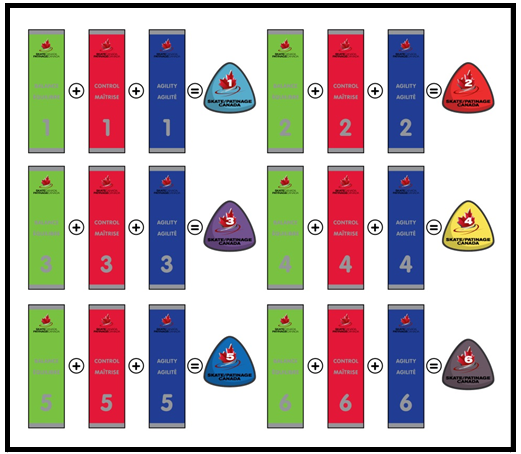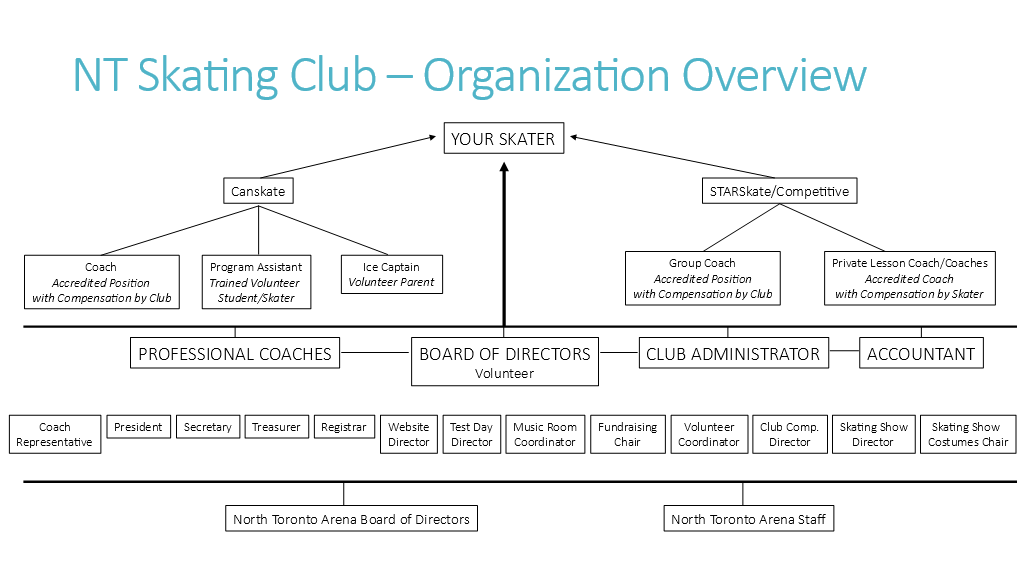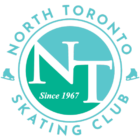Equipment & Clothing
** Helmets are REQUIRED for Parent & Tot and CanSkate programs.
** Helmets are HIGHLY RECOMMENDED for AdultSkate programs.
As skaters improve their skills and move more, snow pants may become too warm and restrictive. Consider waterproof pants or leggings to allow more freedom of movement.
Adults new to skating may wish to wear Inline skating style knee, wrist, and elbow pads with hard plastic shells for extra protection. Wear the knee pads under your pants to prevent excessive sliding if you fall. Volleyball knee pads made of cloth also work well.
Skates
Figure skates, hockey skates or leisure skates with laces that provide good support are recommended. The skates should feel firm. You should not be able to bend the sides of the skate. Figure skates provide the most support for beginner skaters.
Avoid buying a size up to allow for growth or extra space. Skates that are too big will make it hard to control the skate blade. Open the laces and slide the skaters foot all the way forward, there should only be enough room behind the heel to fit one finger. When tied snugly, the skate should not move around on their foot.
We recommend going to a store that specializes in selling skates to get properly fitted.
We do not rent skates or provide hockey helmets.
Skate Checklist
Helmet Checklist
Specialty Skate Stores
What to Expect
The first few weeks of class will be focused on getting comfortable on the ice. The first step is teaching new skaters how to get up and fall down again!
For younger children, games will be played to encourage your child to stay up on their skates. Most skaters will be able to get up on their own and start moving short distances within the first 3 – 4 weeks. Extra practice between classes with the assistance of a skating adult will speed up their learning.
Every skater will progress at their own pace. If you have any concerns, don’t hesitate to contact us.
CanSkate Program
The Skate Canada CanSkate Program is divided into three fundamental areas.
- Balance: Concentrating on most forward skills, pushing technique and edges.
- Control: Concentrating on most backwards skills, stopping and speed elements.
- Agility: Concentrating on most turning and jumping skills.
Balance, Control and Agility each have 6 stages. Skaters earn a ribbon for each stage they complete. When a skater earns the ribbons for Balance, Control and Agility in a stage, they earn a stage badge.

You can read about the skills taught in each stage in the CanSkate Stages Guide.
Get Involved!
Our club runs on volunteer power! Join the Board of Directors to be a part of overall club management. Volunteer at one of our many events or offer your expertise in any area. Volunteers are part of building a great skating community. They keep our club running smoothly and allow us to offer extras like an Annual Ice Show and Club Competition.

